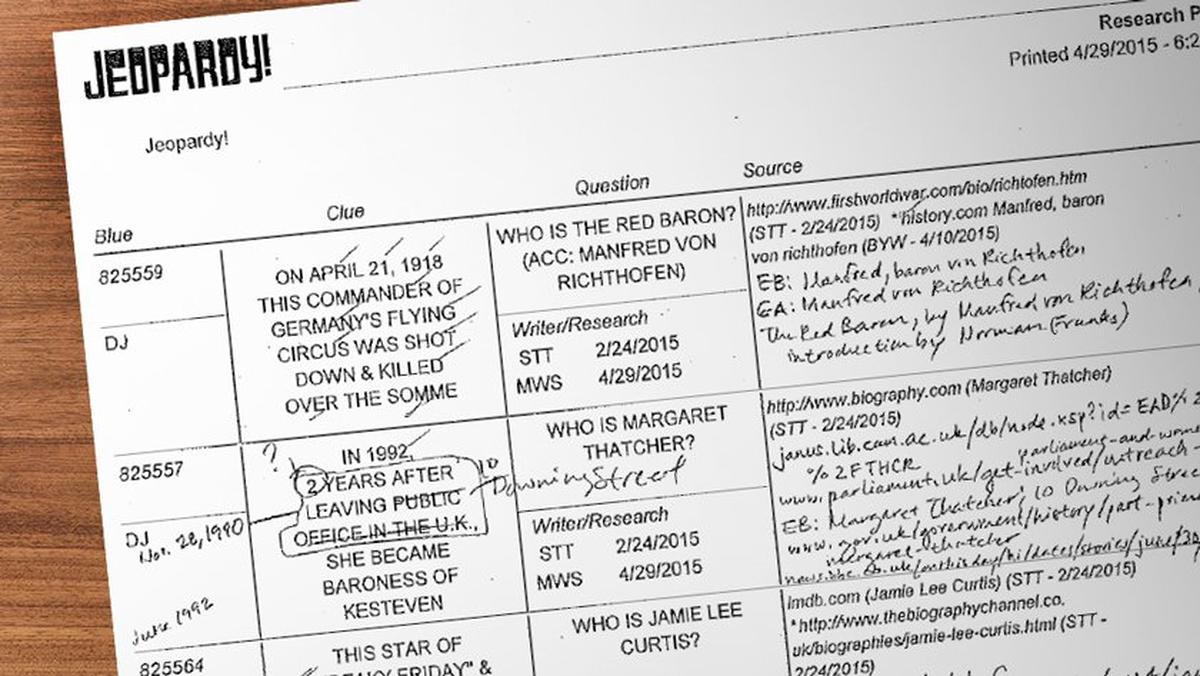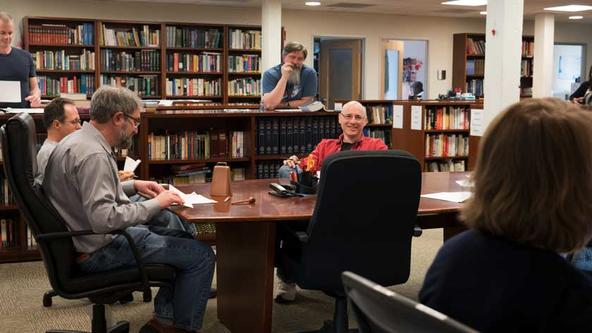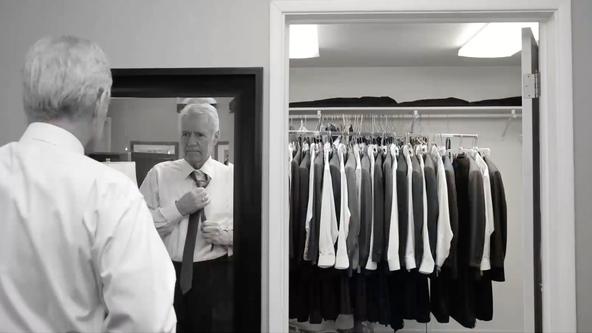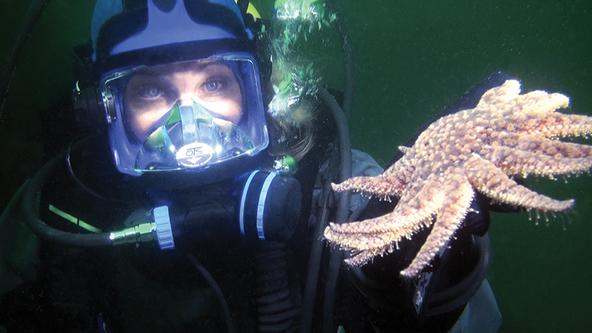Featured J!Buzz
The task of a Jeopardy! researcher is not a small one: confirm that every bit of information in 14,000 clues prepared for each season is verified and double-sourced, and try to ensure that each clue has only one possible correct response. That’s a lot of fact-checking. Fortunately, we have a whole team of skilled researchers to thoroughly vet every clue that hits the gameboard. If you’ve ever wondered what it takes to be a Jeopardy! researcher, here’s a peek.
1. LOVE FOR THE WRITERS
Before a clue can be researched, it’s got to be written. The writers and researchers work in the same space and are the yin to the other’s yang. “The relationship is that we’re all in it together,” said Suzanne Stone, who’s been with Jeopardy! for 34 years. There are times when a 20-minute water cooler conversation about squirrels can inspire an entire category (true story).
After the Jeopardy! writers have officially entered and flagged clues in the Jeopardy! database, the clues show up on a researcher’s radar. The researchers select a category of clues to fact-check, looking out for those marked “priority” by the writers, and recording all research sources and notes in the database. Then the fun begins.
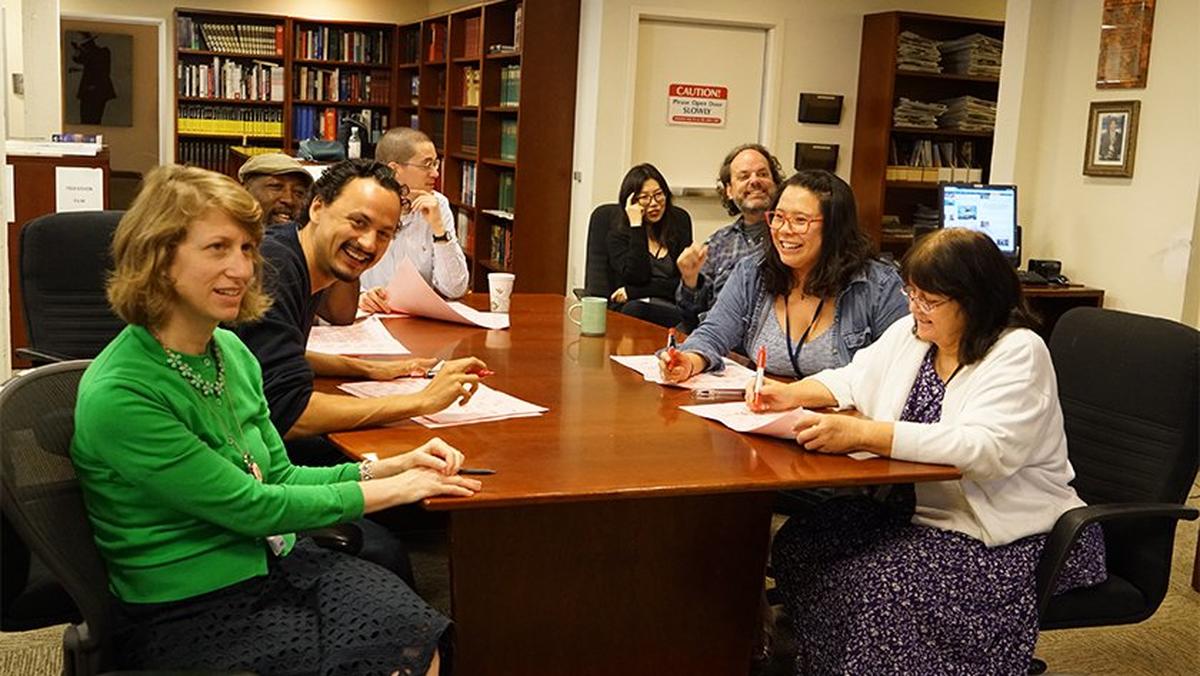
Meet the team! L-R: Writer and editorial supervisor Michele Loud reviews materials with researchers Marcus Brown, Michael Harris, Keith J. Varadi, Margaret Choi, Eric Johnson, Angela Ganata and Suzanne Stone.
2. ATTENTION TO DETAIL, TIMES TWO
“I can’t call it a fact until it’s verified,” said researcher Margaret Choi, who’s been with the research team for five years. With facts at the core of the game, sources are crucial to a Jeopardy! researcher. So that means you need to make sure your source – even your source’s source – is correct. “You’ve got to back up your sources twice,” said Eric Johnson, 14-year veteran of the team. “You essentially try to confirm that the first source was right.” At times, a simple seven-line clue can be rife with facts, and each one needs to be double-sourced.
For references, Britannica and the OED are among the trusted go-to resources, though select trusted sources on the internet can also offer an additional layer of verification. “Recently, I was able to find a piece of information from a reliable online source that updated previous written sources,” Margaret recalled. “So the internet has really opened things up.” Video-on-demand streaming services have also provided the ability to directly verify quotes from movies and TV shows.
But filtering through sources can be tricky at times. Take this case of a clue that quoted late baseball great Ted Williams after he hit his final home run: “We reached Ted Williams himself, and he said he hadn’t said it the way it had been reported,” explained Eric. After the team checked in with several eyewitness reporters, they concluded that the multiple accounts were more reliable than Ted Williams’ decades-old memory. “We basically overruled Ted Williams.”
If the sources don’t work out or if the research will prove too cumbersome, a clue may have to go back for a rewrite.
3. PHONE SKILLS
One thing every researcher needs to be able to do? Make a phone call. Each researcher can recall a moment when they had to dial a source to verify a fact. Said Suzanne, “We usually get on the fast track to talking to someone.” While the team often speaks to experts in their niche fields, sometimes a household name is on the other line – which is what happened to Suzanne: “I spoke with Neil Armstrong when he was teaching at the University of Cincinnati.”
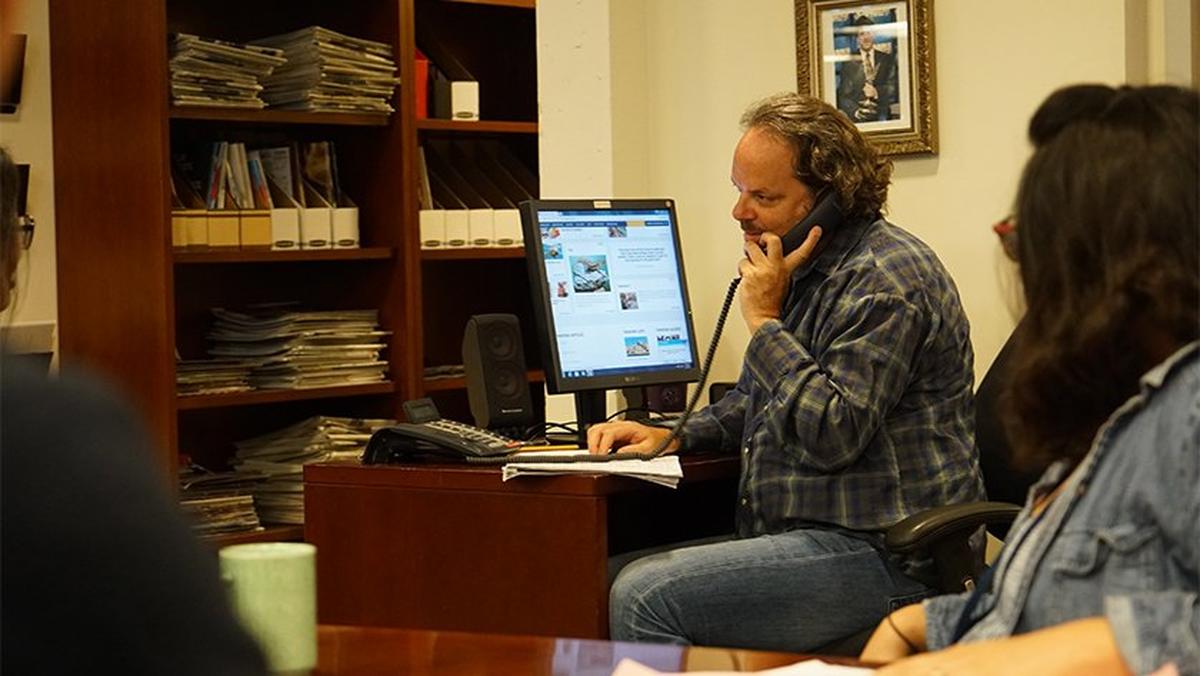
4. DID WE SAY ‘ATTENTION TO DETAIL’?
Researched clues eventually make their way into games, sometimes with revisions by the writers. The games are then sent to the research team for another round of corroboration, with all the researchers checking one another’s work. “We do this process called ‘vetting,’ where we take five games and one researcher will check all the other prior research,” Eric explained. “All the other researchers will also look at the games to see what other possibilities there are for answers.”
5. RESEARCH UNDER PRESSURE
Then comes the final research challenge: Jeopardy! tape day. During the tapings, the researchers watch the games from either the research library or the stage itself to keep track of the gameboard and contestant responses. If anyone questions a ruling – be it a researcher, a writer or even a contestant – it heads to the Judges’ Table for further review. That’s where the researchers come in. Those stationed in the library may get a call when extra research is needed to corroborate findings. They will research whether a response is acceptable or unacceptable.
Even a triple-checked clue still may not be iron-clad, and some rulings do end up reversed in gameplay. “I think everyone’s had one of those,” explained researcher veteran Michael Harris. “The contestant suddenly says something and you’re like, ‘Hmm, well, maybe.’ A lot of times they’re wrong. But then sometimes based on how the clue is written, we decide to accept it.”
Sometimes, even silliness is part of the job. Keith J. Varadi, the newest researcher to the team, recounted one response during the 2018 College Championship. The clue featured lyrics from the LMFAO song “Sexy and I Know It”: “Wiggle, wiggle, wiggle, wiggle, wiggle, yeah, wiggle, wiggle, wiggle wiggle, wiggle, yeah.” A contestant responded with “Jason Derulo,” believing the song to be “Wiggle.” “I had listened to them both multiple times, but we still have to check,” said Keith. So the researchers huddled around a computer, listening intently as the music video with Jason Derulo and Snoop Dogg played on the screen. All in a day’s work for a Jeopardy! researcher.
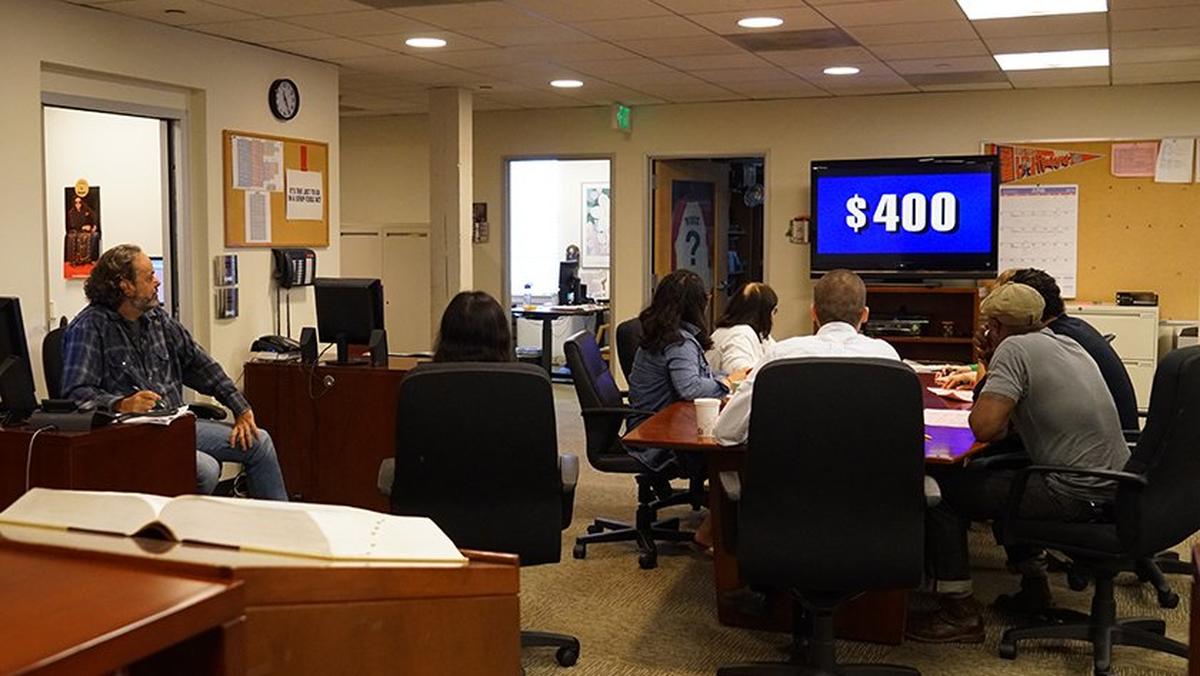
On a tape day, the researchers closely watch the games from their posts.
6. LOVE FOR KNOWLEDGE
The researchers themselves have become mini-experts in a diverse range of subject matter, from art, literature and sports to more niche topics like vintage films, The Beatles, and Japanese language and culture. The most important thing every Jeopardy! researcher needs is a passion for knowledge. It is the task of a Jeopardy! researcher to never rest easy on previously found facts; the team lives by a “no rubber stamping” mantra. “I get to come to work and make TV – fun TV – and study and learn and get paid to do it,” said Michael. Or as Keith put it, “It’s like we’re getting paid to attend the smallest liberal arts college.”


